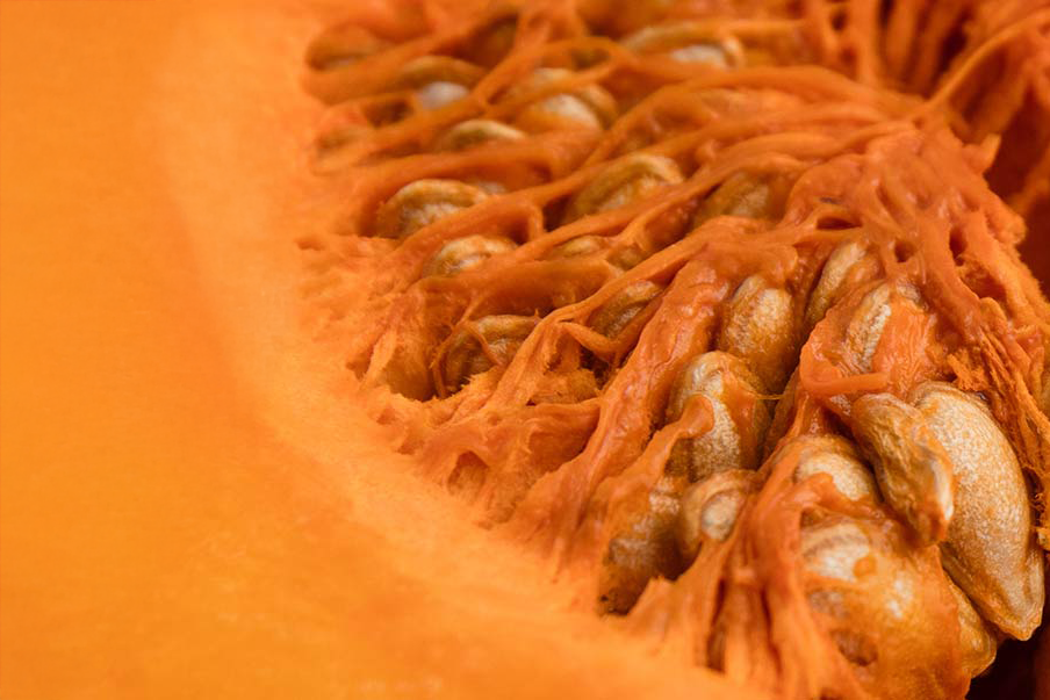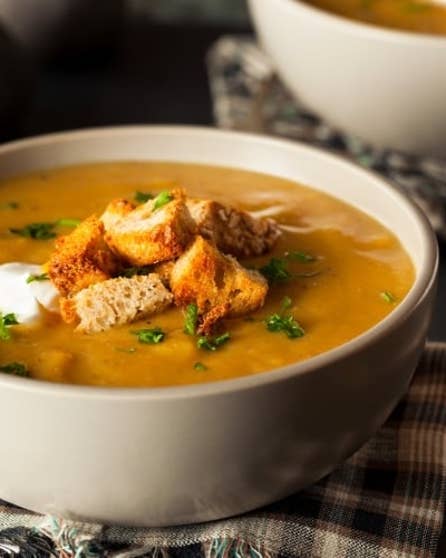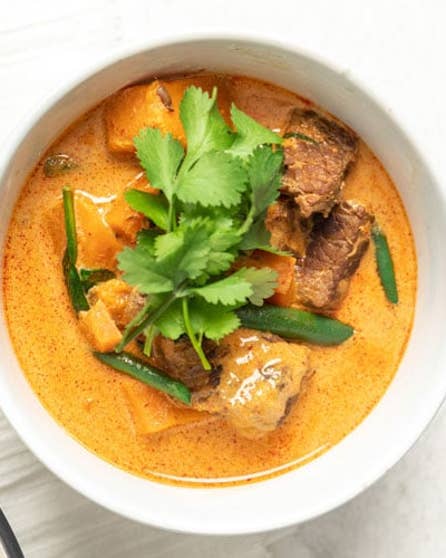Pumpkin
There are many different types of pumpkin, which vary in terms of flavour and texture, so its a good idea to select the type of pumpkin most suited to your cooking needs. Take a look at our buying, cooking and storing guide.

How to buy
There are many different types of pumpkin, which vary in terms of flavour and texture. Mature pumpkins will feel smooth to the touch, while younger pumpkins may be slightly sticky. Choose firm pumpkins that feel heavy and have few blemishes on the skin. You can test their firmness by pushing on the bottom of the pumpkin with your thumb. You should also make sure you choose the pumpkin best suited to your cooking needs – crown pumpkins are ideal for soup, whereas buttercup pumpkins are better for roasting and mashing.
How to storeWhole pumpkins are best stored in a cool, dark, dry place – such as the bottom of your pantry or under your kitchen sink. Once cut, scoop out the seeds from the pumpkin, then place the seedless flesh in an airtight container and refrigerate.
Cooking tips- When making soup, don’t be afraid to roast the pumpkin first to bring out the flavour.
- Wash and dry the pumpkin seeds (known as pepitas) and use in salads. You can also roast them with cinnamon for a breakfast sprinkle.
- Blend roasted pumpkin and chickpeas with paprika and olive oil to make an easy pumpkin hummus. Serve with toasted Turkish pide and lemon wedges.
- Grated raw pumpkin can be used when baking. Simply squeeze out the liquid, then use the grated pumpkin in your favourite carrot cake recipe to give it a delicious makeover.
Pumpkin is a very low-calorie vegetable, and it’s full of nutrients such as calcium, potassium, and vitamins A, B, C and E. It’s also high in dietary fibre, low in fat, and contains no cholesterol.
Shop fresh fruits and vegetables online
1 / 0





.png)



















